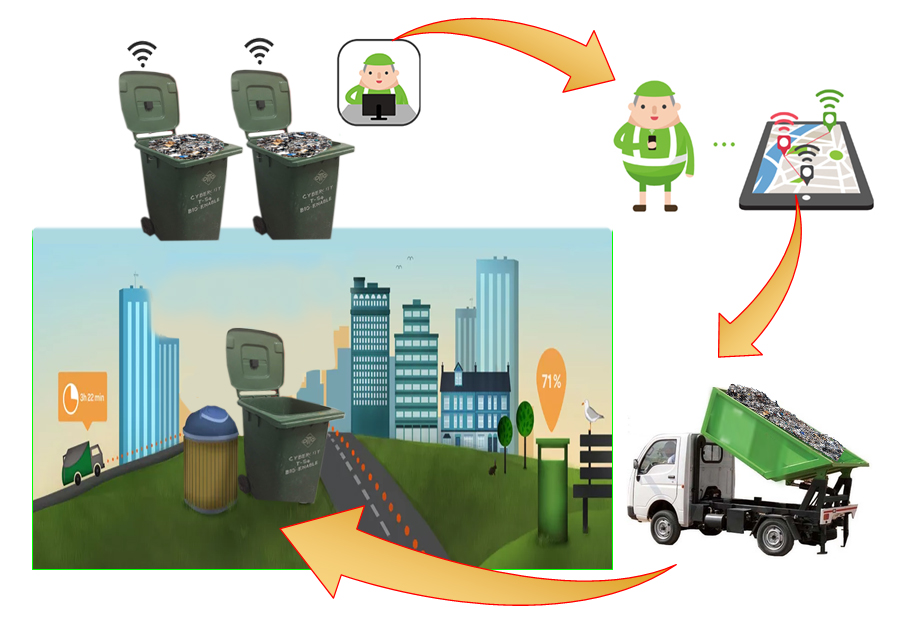The Waste Management Crisis in Birmingham
Since early January 2025, residents of Birmingham have been facing a growing crisis as the city council and the Unite union continue to clash over pay, terms, and conditions for waste and recycling collectors. The latest round of negotiations ended in tension, leaving the situation unresolved. At one point, 17 tonnes of uncollected rubbish piled up across the city, posing serious public health and safety risks. These include pest infestations, the spread of disease, and fire hazards. The deteriorating conditions have not only tarnished the city’s reputation but also impacted its ability to host events and attract visitors.
The issue of rats has become particularly concerning, with reports of cat-sized rodents making headlines worldwide, from the US to Australia. This has drawn attention to the broader challenges facing Birmingham’s waste management system.
Balancing Worker Needs and Technological Innovation
At the heart of the dispute is the negotiation over workers’ pay, which remains a critical issue. However, the job itself is inherently dangerous, and with an aging population, it may become increasingly difficult to recruit new workers. A more equitable approach would involve using technology to help transition workers into better-paid and safer roles. This could be an opportunity to build a more sustainable waste management system in the UK’s second-largest city and beyond.
Advancements in robotics and artificial intelligence are making automated refuse collection a reality. Some cities in the US, Canada, and parts of Europe already use robotic equipment in their waste management systems. These innovations could reduce the physical strain on workers while improving efficiency.
The Role of Skilled Personnel in Waste Management
A shortage of skilled personnel threatens the transition towards a greener economy. People must remain at the centre of any solution. Skilled workers are essential for separating different types of waste, which improves recycling rates. Certain products, such as electronics, automotive parts, and materials like plastic and metal, have high recovery value. However, this process is still challenging for machines to replicate effectively.
Smart Bins and Automated Trucks: A Path Forward
Birmingham City Council has proposed improvements to waste collection, including increasing the number of rubbish trucks, reducing the number of collection days, and retraining refuse collectors. While these steps are positive, the council has yet to fully leverage existing advanced technologies.
For instance, the plan includes improving communication with residents via text messages about collection days. While this is a welcome step, it is relatively basic. During the pandemic, many recycling centres introduced online booking systems, which helped reduce queues and traffic congestion. Prior to that, long lines were common, leading to wasted time and increased emissions.
A more comprehensive approach is needed to make the most of new technology. Automated side loader trucks and smart bins are already in use in various cities. Smart bins use sensors to monitor waste volumes and predict when collection is needed. By analysing the strengths and weaknesses of each technology in different areas of the city, the council can develop a more efficient system.
Enhancing Efficiency Through Technology
Side loader trucks, which can lift large bins and empty them, automate a dangerous process and are considered a mature technology used in cities across the US, Canada, and Sweden. These trucks offer benefits such as increased productivity, reduced costs, and improved worker safety. However, they may struggle in narrow streets.
Sensors embedded in vehicles, including cameras, can provide data on waste distribution across the city. This helps create a waste map, which AI algorithms can analyse to generate customised collection schedules. These algorithms can learn and adapt to improve service over time.
In busy areas, smart bins can prevent rubbish from accumulating. Advanced machine learning techniques can further optimise collection schedules by detecting anomalies, such as sudden increases in specific types of waste. Such systems provide more adaptable solutions and increase the productivity of waste management staff.
Innovations in Waste Identification and Sorting
Recent advancements in imaging techniques and chemical analysis can help identify different waste materials and allow for automatic sorting. These technologies also enable the detection of hazardous waste, improving safety and efficiency.
Other technological solutions, such as smart underground large storage containers, can reduce the frequency of collections. However, implementing these systems may require significant changes to infrastructure and trucks. They already exist in parts of Spain.
Pneumatic waste collection systems have been tested in Wembley, a suburb in northwest London. In this system, waste is sucked through underground pipes by a fan system at speeds approaching 50mph to a central point, where it is stored in airtight containers until further treatment. More than 30 countries use this system.
The Importance of Public Education
Educating the public is also crucial. Reducing waste at the source can save money and ease the pressure on waste collection systems. Encouraging responsible disposal and recycling habits can have a lasting impact on the environment and community well-being.
For Birmingham, overlooking advanced technologies will not make the council’s task easier. Embracing innovations such as robotics trucks and smart bins could lead to a cleaner, safer city. Residents would likely prefer seeing fewer rats on the streets and more efficient waste management solutions.


